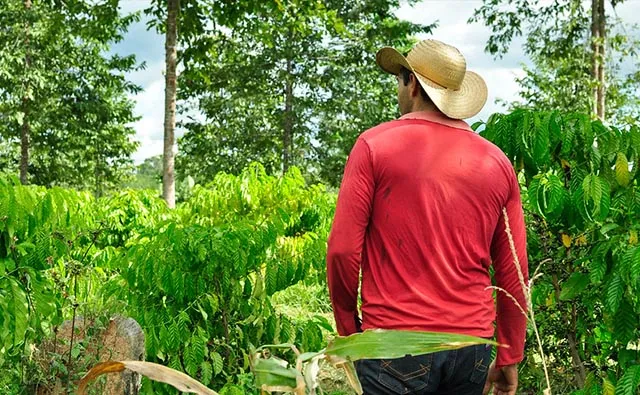Industry News, Agriculture & Feed
90 low-impact pesticide registered in Brazil in 2023

Industry News, Agriculture & Feed

The copyright of featured pic belong Icaro Cooke Vieira, CIFOR, Flickr
The latest 55 registrations of formulated products in Brazil were officially confirmed on Friday, December 29, by the Department of Plant Health and Agricultural Inputs of the Secretariat of Agricultural Defense. Among the pesticides that were effectively approved for use by Brazilian farmers, almost one-third, or 19 products, are classified as “low-impact.”
After the latest registrations were announced, the year, 2023, ended with 365 pesticides being approved for use on Brazilian crops. Of the overall total, 90 products belong to the “low-impact” group, which reflects the ″growing demand for sustainable agricultural practices,″ according to the Brazilian Ministry of Agriculture and Livestock (MAPA).
Low-impact products can have biological origins or be produced from organic agriculture, semiochemicals or growth regulators.
According to MAPA, they are “important for agriculture, not only for toxicological and environmental reasons but also because they benefit crops with insufficient phytosanitary support, as these products are approved for target pests and can be recommended for use on any crop.”
The biological pesticides mentioned in the publication include products containing Bacillus subtilis, Bacillus thuringiensis, Bacillus amyloliquefaciens, Metarhizium anisopliae and Trichoderma asperellum, which are already active ingredients used widely by manufacturers in various biological products.
There are also those containing biological products with registered but slightly less known actives, such as Bacillus firmus, peptides derived from Harpin protein, Heterorhabditis bacteriophora and Steinernema carpocapsae. Two products identical to others already published were also registered. One is based on the mixture of isolated and Bacillus thuringiensis with Brevibacillus laterosporus, and another is based on Bacillus aryabhattai Bacillus haynesii and Bacillus circulans.
Regarding chemical products, innovation comes from mixtures of actives that are already registered. “The approved actives are registered in the United States, the European Union and Australia. Many of these products, according to the new definitions of Law 14,785/2023, are generic or identical products,” MAPA said.
“The registration of generic pesticides is crucial to reducing market concentration and increasing competition, resulting in fairer trade and lower production costs for Brazilian agriculture. All registered products have been assessed and approved by the responsible health, environment and agriculture authorities, according to scientific criteria and in line with the best international practices,” it added.